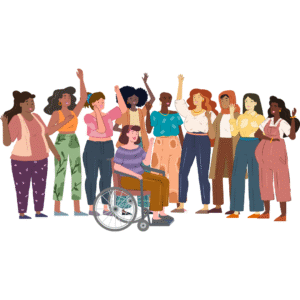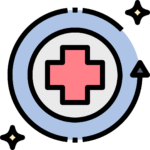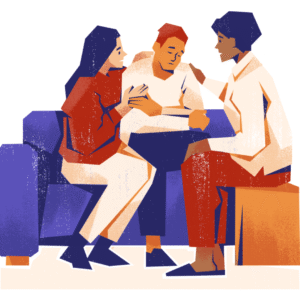While working toward recovery is in no way an easy feat, with the help of nutritional treatment, psychological intervention, medical monitoring, social support from loved ones (and hopefully a combination of all of them), recovery is fully possible!
There are a variety of different approaches that can be taken, including individual counseling, Family-Based Treatment (the gold-standard for the treatment of AN and BN for children and teens), group counseling, and more. Treatment plans aim to address nutritional, behavioural, medical and psychological complications to stop/manage ED behaviours, and should be fully customized for each person’s unique presentation, including any co-occurring conditions or traumas.
Given that EDs impact every sphere of someone’s life, it is important to explore and recognize how the ED serves and doesn’t serve each person. Trauma-informed approaches can be especially useful for exploring the protective elements of EDs, and ways to better cope with any and all kinds of triggers. Harm reduction approaches can also be useful for working towards recovery in more realistic ways than abstinence-based approaches. For example, some people may be able to abstain from self-induced vomiting when starting treatment, while others may find this almost impossible to do. A harm reduction approach toward this could be to try to delay the purge by an hour, or to drink Gatorade afterwards to avoid any electrolyte imbalances that can harm the heart (5).









































































